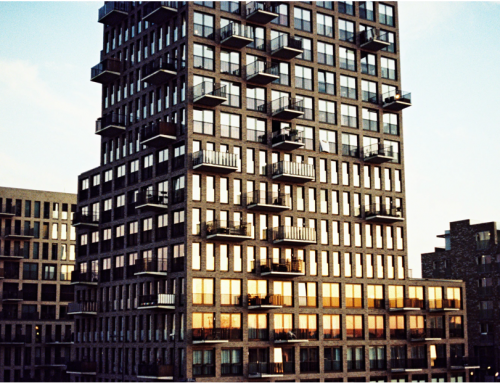In most circumstances, if you own one of the 4.3 million leasehold properties in the UK, the freehold is controlled by a company. This firm is also known as a property management company, a residents’ management firm, a flat managing agent, or a freehold management firm.
If you are one of the more fortunate leasehold property owners, you will have been granted a stake in the management company’s ownership, as well as a seat on its board of directors, when you purchased your property.
In this guide, we’ll discuss the most common residents management company problems and how they can be solved.
What is a residents management company?
A Residents Management Company is a non-profit organisation founded by residents of a block of flats who wish to manage and maintain the building in which they live.
Each resident will become a shareholder in the firm, which will subsequently be responsible for managing the freehold of the entire facility.
Residential management companies maintain an equal stake and control over the organisation by each tenant acquiring one share per flat. If a resident sells their flat, the share instantly transfers from the old homeowners to the new ones, leaving only the people who live in the building in charge of the property’s management.
Residents Management Companies will be accountable for communal areas, the infrastructure of the property, including its gardens, brickwork, and roofs, interior areas such as corridors, and any gates or security measures of the block.
4 common problems a resident management company might face
1. Disagreements about repair or maintenance work
Repair works and maintenance, mostly the costs, can often cause friction and disagreements between members of a residential management company.
One alternative is to approach the Board of Directors and ask for assistance with any upcoming big renovations. These tasks can be time-consuming and need a lot of effort from the Directors in terms of communication and organisation, therefore suggesting to form a subcommittee particularly for the project may be warmly accepted.
You may organise an exposition of the proposed works, analyse any quotes obtained, communicate with other residents and owners about the plans, and so on. While time demanding, this is only for a single project and will have a clear end.
Approaching the issue with plenty of time should leave enough time to come to an agreement everyone is happy with.
2. Day to day running of the building
The day-to-day running of an apartment block or building can often be dismissed or not a high priority for a director of a freehold management company.
Being present and informed in the day-to-day operations is a simple method to get the most out of your Residents Management Company.
Directors often have day jobs, thus they would welcome eager participants to serve as their eyes and ears throughout the process. The Directors cannot be everywhere at once to guarantee that all repairs are completed, that cleaning is up to standard, that requests are met, and so on.
This is where you come in; you may assist by discussing any outstanding concerns, learning about regular contracts so that you can advise the Board of any difficulties that have yet to be resolved.
3. Poor communication
Poor communication or a lack of transparency from the board of directors can cause a multitude of issues. Not a director yourself? You can become one if you feel you’re not being listened to!
As a Director, you will be in charge of making crucial decisions on how the development is run. You will be on the front lines of change, dealing with topics such as legal compliance, financial management, and day-to-day operations, to mention a few.
You will need to devote your time for the betterment of both the development and everyone who lives there, but you will have the potential to positively impact your property for years to come.
4. Important issues not being dealt with
Important issues could range from dangerous maintenance issues to buildings insurance not being updated.
General meetings for residents management companies provide an excellent opportunity to meet your other residents and address building-wide issues that you may have, hopefully these meetings will encourage that the residential management company complies with important issues.
The reason for attending the general meeting is to show your support for your nominated Directors once a year, to have fruitful conversations and debates about future concerns and plans, and to provide suggestions for the benefit of the organisation. It is the absolute least you could do if you are serious about getting the most out of your Residents Management Company.
Looking for a professional block management company?
We hope this guide has helped you understand some of the problems members of a RMC can face and the best practice of how to deal with them. If you need more advice, our block property management experts are always here to help.
We are a professional managing agent which has been assisting leaseholders and residents with their Right To Manage procedure for many years, and we’re regulated by ARMA, so you can be certain that your block’s management is in excellent hands. Our services are all-inclusive, so you can sit back and relax while we handle every part of the building.
If you’re interested in exercising your Right To Manage, get in touch with Scanlans today to see how we can support you through the formation process and ongoing management of your residential block.
Residents Management Company Problems FAQs
What is a residents management company and who controls its decisions?
It is, in essence, a firm that is particularly set up to administer community facilities that are used by everyone in the building. This could include halls, gardens, staircases, and rooftops, among other things. An RMC is often formed when a developer completes a building and wishes to transfer management power to the leaseholders.
What is the difference between a right to manage company and a residents management company?
RTM is a statutory right that permits leaseholders to apply for the right to manage their block, whereas RMCs are typically set up by the developer after the building is completed, rather than being a mechanism to allow leaseholders to obtain management of their complex.
Who can be a director of a residents management company?
The Leaseholders, or flat owners, make up the Directors of this Resident Management Company. While there are some formalities about who can become Directors of this company, the majority of the time, it is the individual flat owners themselves.









Leave A Comment
You must be logged in to post a comment.